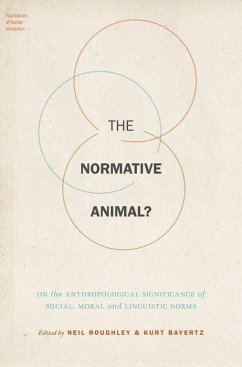
Normative Foundations of the Welfare State
The Nordic Experience

PAYBACK Punkte
36 °P sammeln!
This is a sharp analysis of the unique Nordic welfare system with urgent lessons for governments and societies across the globe. Welfare programs and institutions tend to be analyzed as instrumental arrangements, overlooking the fact that welfare programs are essentially expressions of moral conceptions and values. This book recognises this distinction and offers analyses, perspectives and interpretations of the normative foundation of the 'Nordic welfare state model'. These authors examine the main normative principles in this model, exploring their origins and the relationship between them. ...
This is a sharp analysis of the unique Nordic welfare system with urgent lessons for governments and societies across the globe. Welfare programs and institutions tend to be analyzed as instrumental arrangements, overlooking the fact that welfare programs are essentially expressions of moral conceptions and values. This book recognises this distinction and offers analyses, perspectives and interpretations of the normative foundation of the 'Nordic welfare state model'. These authors examine the main normative principles in this model, exploring their origins and the relationship between them. Paying particular attention to the principles of 'universalism', 'public responsibility for welfare', and 'work for all', they consider their significance for current welfare policy and question whether external economic and ideological pressures are threatening these principles. The book is divided into three clear parts: *Part I considers the historical trajectories behind the Nordic welfare model *Part II looks more specifically on normative tensions and dilemmas in current welfare policies with a focus on women friendly welfare, attitudes to basic income and alcohol and drug misuse *Part III focuses on the possible change in the normative foundation of the Nordic welfare states This book will be essential reading for researchers and students of the welfare state and also to those in the fields of social policy, comparative politics and political economy.














